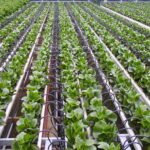Navigating regulatory compliance and licensing for agroprocessing businesses can be complex, as there are typically several regulations and requirements that must be met at the local, regional, and national levels. However, by following a systematic approach and seeking the necessary guidance, you can ensure that your agroprocessing business complies with all applicable laws and regulations. Here are some steps to help you navigate the process:
- Research local regulations: Start by researching the specific regulations that apply to agroprocessing businesses in your locality. This may include zoning restrictions, health and safety regulations, environmental regulations, and permits required for specific activities such as food processing or handling hazardous materials. Contact your local government or regulatory agencies to obtain information on the specific requirements.
- Understand national and regional regulations: Familiarize yourself with the national and regional regulations that apply to agroprocessing businesses. These may include food safety regulations, labeling requirements, labor laws, taxation, and licensing requirements. Consult the relevant government agencies or industry associations for guidance on compliance.
- Formulate a compliance plan: Once you have a clear understanding of the regulations, develop a comprehensive compliance plan. This plan should outline the specific actions you need to take to ensure compliance with each regulation. Identify the responsible personnel within your organization who will oversee and implement the compliance measures.
- Obtain necessary licenses and permits: Determine the licenses and permits required for your agroprocessing business. This may include business licenses, food processing licenses, environmental permits, and any specific permits related to the processing activities or handling of agricultural products. Contact the appropriate licensing authorities to understand the application process, required documentation, and fees involved. Ensure that you meet all the criteria before submitting your applications.
- Establish quality control and safety measures: Implement robust quality control and safety measures to ensure compliance with food safety and handling regulations. This may include establishing standard operating procedures (SOPs), conducting regular inspections, implementing good manufacturing practices (GMP), and maintaining proper documentation of processes and procedures.
- Train and educate employees: Provide comprehensive training to your employees on relevant regulations, safety protocols, and best practices. This will help ensure that everyone in your organization understands their responsibilities and follows the necessary compliance measures. Regularly update training programs to keep employees informed about any regulatory changes.
- Maintain proper records: Keep accurate and up-to-date records of all activities, permits, inspections, and compliance measures. This documentation will be valuable during audits or inspections by regulatory authorities.
- Stay updated on regulatory changes: Keep yourself informed about any changes or updates in regulations that may impact your agroprocessing business. Subscribe to newsletters, follow industry associations, and maintain communication with regulatory agencies to stay up-to-date with the latest requirements.
- Seek professional assistance if needed: If you find the regulatory landscape overwhelming or require specialized knowledge, consider seeking professional assistance from consultants, lawyers, or industry experts who have experience in agroprocessing regulations. They can provide guidance and help ensure that your business remains compliant.
Remember that regulatory compliance is an ongoing process, and it’s important to regularly review and update your compliance measures to adapt to changing regulations. By staying proactive and committed to compliance, you can establish a solid foundation for your agroprocessing business while meeting the necessary legal requirements.









